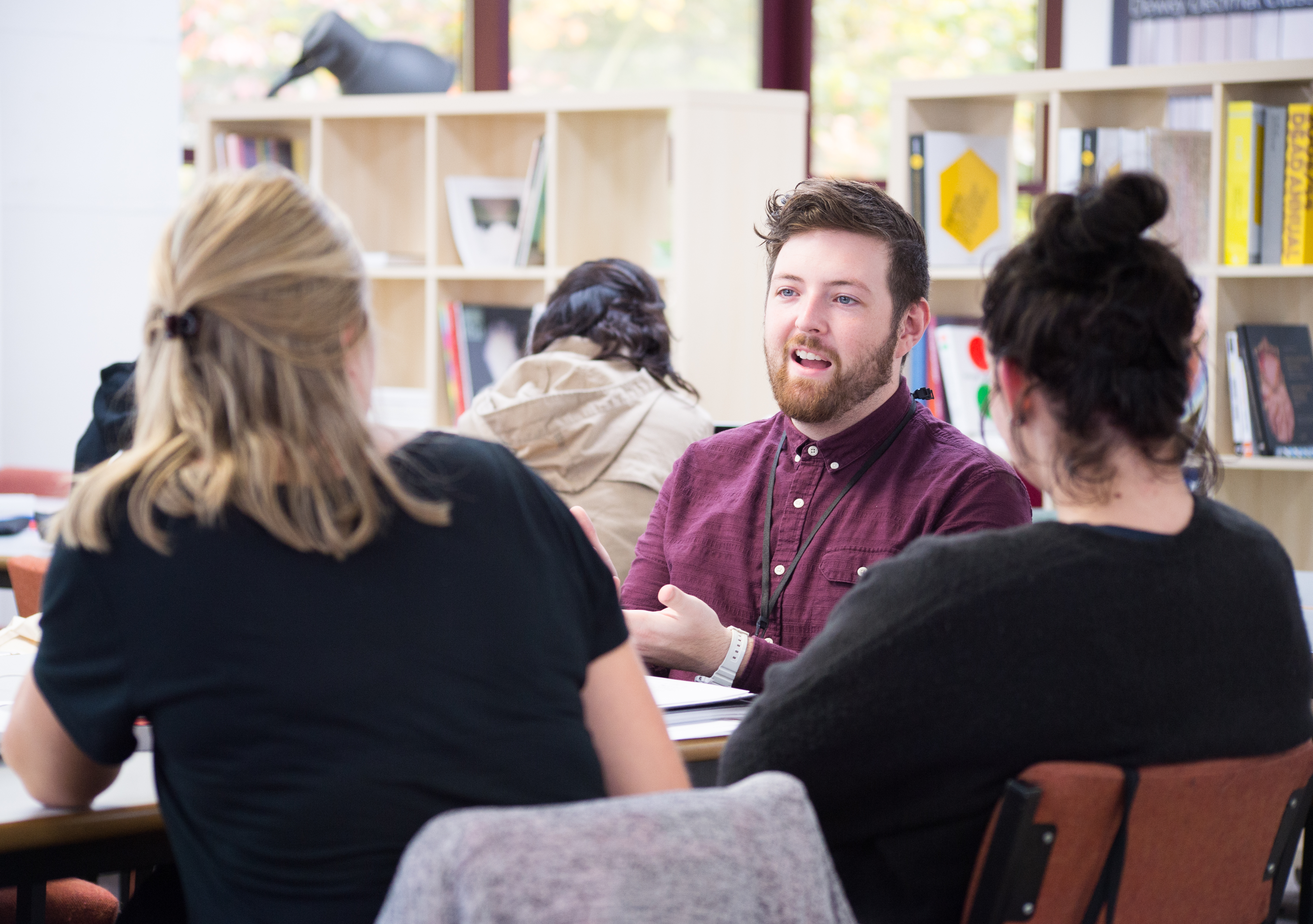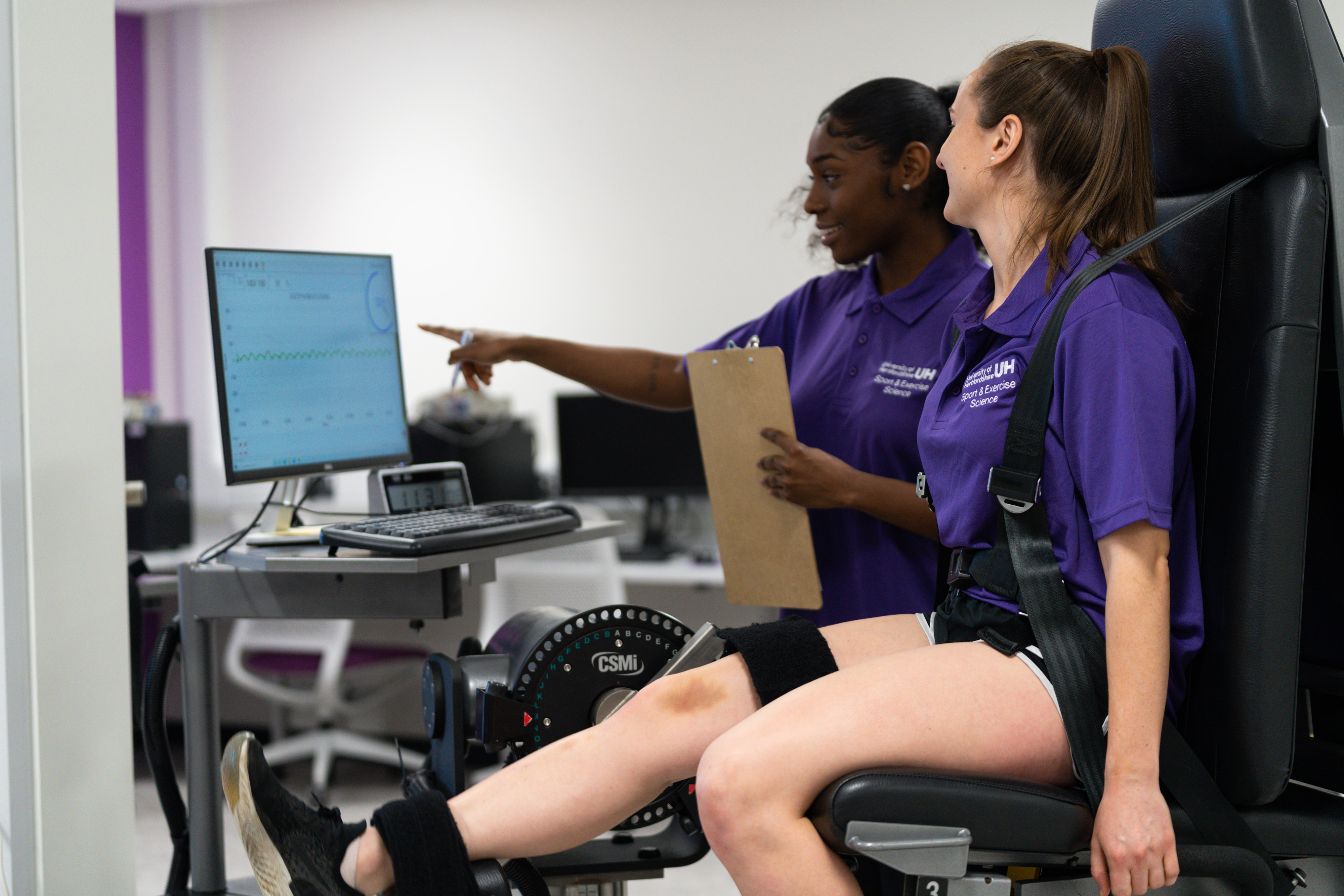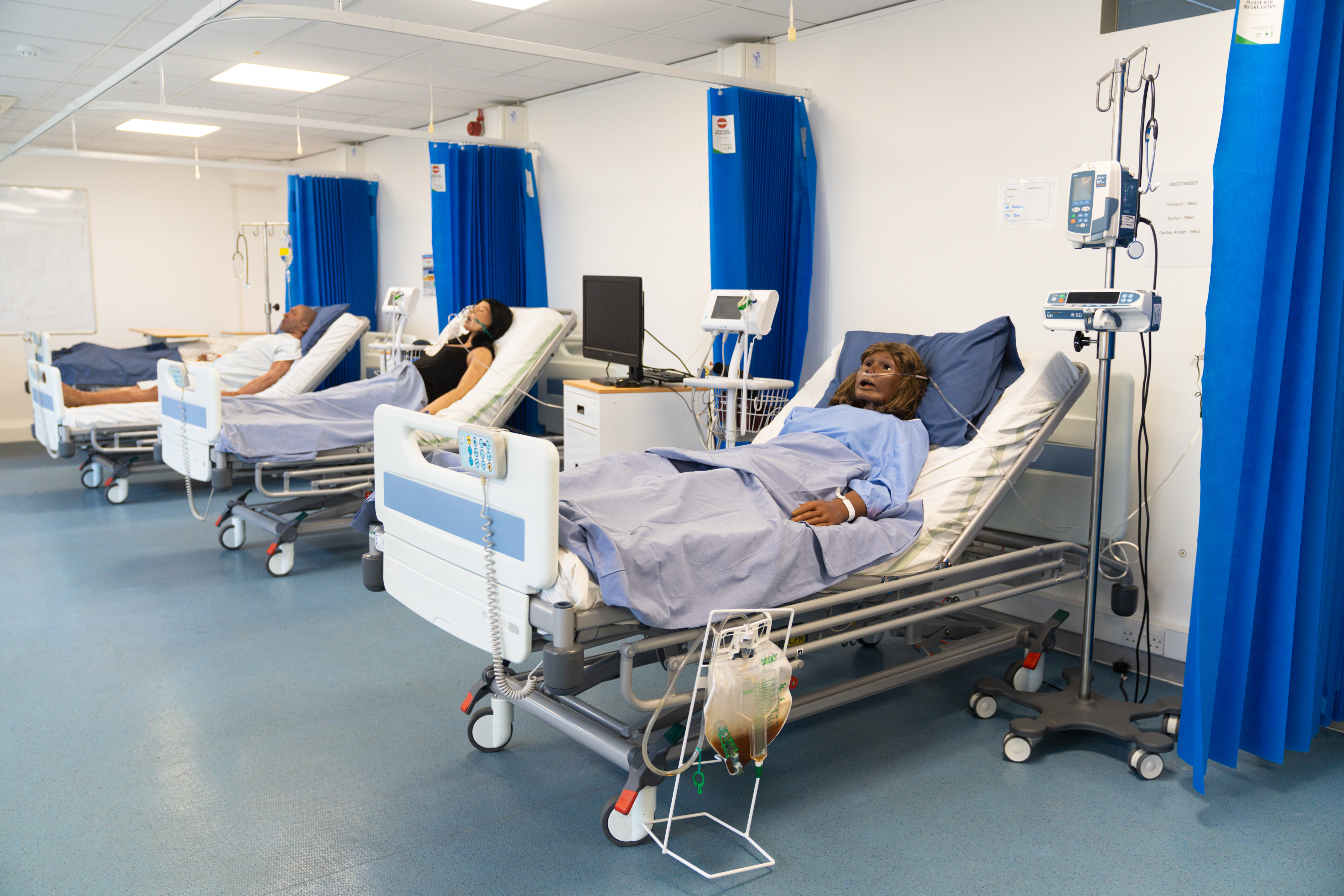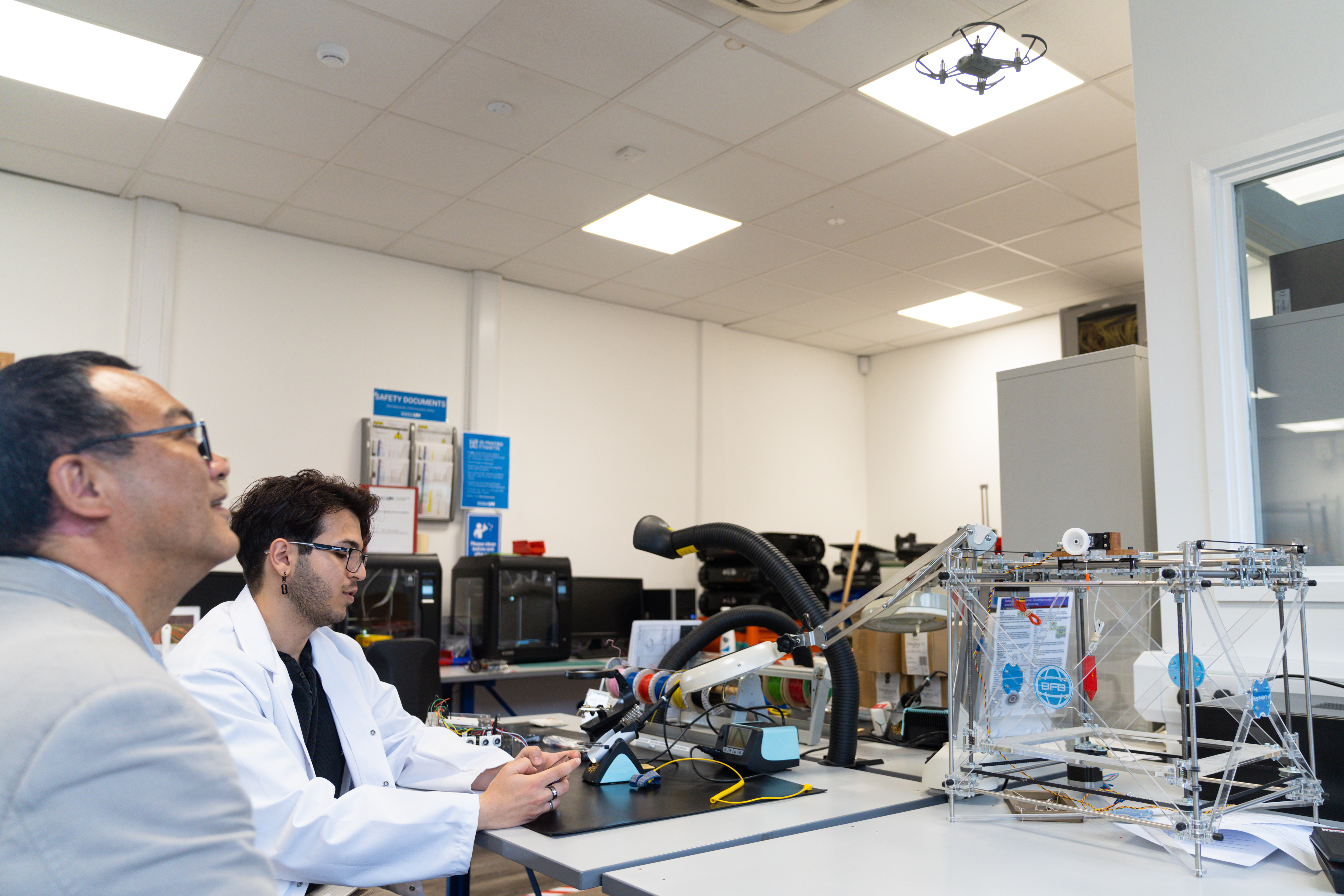Practical sessions often take place in laboratories where students get to do hands on practical work supported by academic and technical staff. These are often highly specialised areas and will be used for both practical and project work. They are also used for research work by postgraduate students and post-doctoral researchers.
Clinical simulation is being increasingly used as an effective experiential teaching tool when training health care professionals. The University’s Clinical Simulation Centre is an essential and popular educational resource. The state-of-the-art facilities comprise a range of simulation suites and provide a realistic clinical environment where students’ practice necessary skills under the expert supervision of academic and technical staff.
The Centre contains a wide range of teaching resources, including:
- Adult, child and baby 'advanced life support' mannequins
- Full body adult, child and baby patient simulators
- Contemporary critical care equipment
- Range of clinical settings, e.g. ICU, ED and operating theatres
- Facilitated learning by experienced healthcare clinician
There are also a range of specialist practical laboratories, including:
- A psychology observation laboratory complete with a studio housing remote-controlled cameras, which is equipped with the latest sound and video technology including a digital edit suite;
- A Geosciences laboratory with specialist equipment for the testing of sediments including: particle size analysis by wet sieving; basic soil properties, as well as compressibility and shear strength of soils, including both direct shear and triaxial shear testing;
- A physical geography laboratory especially designed to support students' practical learning activities in physical geography, geology, environmental sciences;
- The nutrition and dietetics laboratories, which allow students to prepare and analyse food and nutritional values for a variety of diets and metabolisms. The lab is used for basic cooking skills, modifying recipes to meet special dietary requirements and to learn about the different cultural influences on food. Students also use the lab for developing their own teaching skills and some undertake their final year research projects for example exploring thickness needed for patients with swallowing difficulties.
The University has its own field station and observatory at Bayfordbury which is used by our Geography, Environmental Sciences, Astronomy and Astrophysics students. Bayfordbury Observatory is the University of Hertfordshire's teaching observatory for astronomy and astrophysics. It is one of the best equipped and largest teaching observatories in the country.
Biosciences and Pharmacy have a range of world class teaching and research laboratories that fosters multi-disciplinary learning and research. Students on our courses spent more time working on practical projects in our laboratories compared to other institutions.
The construction of a new state-of-the art building for the School of Physics, Engineering and Computer Science set to open in 2024 will replicate the modern working environments that mirror our students’ future careers. The building will be versatile, multi-purpose and flexible providing the space needed to work effectively with cutting edge tools and facilities for students, staff and businesses. It will accommodate all the School’s teaching staff and researchers under one roof, enhancing the student experience and creating stronger and more supportive academic communities and teaching spaces. Our new facilities will replicate the modern working environments that mirror our students’ future careers. The building will house modelling, simulation and research labs, including a flight simulator and automotive workshop complete with electric vehicle facility, as well as a wind tunnel, welding bay and a controls testing suite.
The computer science labs will house telecommunications, robotics, robotics teaching, human-robot interaction and UX empathy labs. The research spaces and hub include space for dark rooms, clean rooms, sample prep labs, calibration and assembly labs. Students will benefit from large Experiential Learning Zones as well as flexible teaching and learning environments.





